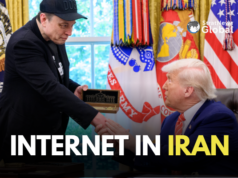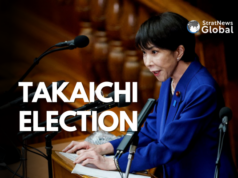Dr S. Jaishankar has hit the ground running by taking formal charge again as India’s External Affairs Minister (EAM) early on Tuesday. Just as well, since there are many urgent decisions that need to be taken in the foreign policy space in the coming days.
G-7 Meeting
Jaishankar is expected to travel to Italy with Prime Minister Narendra Modi to attend the G-7 summit to which India has once again been invited. Jaishankar will have to formulate India’s concerns and priorities that the Prime Minister will articulate at the G-7 meeting.
Ukraine Peace Conference
India will also have to take a call on participation in the peace conference on the Russia-Ukraine war to be hosted by Switzerland on 15-16 June. Russia has already declined to attend the Ukraine-initiated conference. India, according to all indications, will send an official to the conference since Russia will not be at the table.
Dealing With China
More urgently, however, India will have to chart out a course on dealing with its implacable adversary China. The military standoff along the Himalayan frontier between India and China is already in its fifth year. The two sides have remained engaged at military and diplomatic levels to maintain a semblance of normalcy along the line of actual control. But there has been no high-level contact between the two sides of late.
A full-fledged new Chinese ambassador in Delhi has been doing the rounds of think-tanks and holding meetings with known China watchers in India. There has been no formal meeting at the higher official level so far. The first opportunity for Prime Minister Modi and Chinese President Xi Jinping to come face to face will be at the summit of leaders from the SCO member countries in early July.
There is no word yet whether there will be any bilateral meeting between Modi and Xi at Astana in Kazakhstan. Jaishankar and his team will have to first figure out if there will be any common ground between Delhi and Beijing before even suggesting any pull aside between Modi and Xi. Jaishankar himself has repeatedly been firm in conveying to the Chinese that the tense situation on the border is impacting on the India-China relationship and the onus is on China to restore normalcy before any forward movement can take place.
The Neighbourhood
The other area that will need focused attention from Jaishankar is India’s outreach to the immediate and extended neighbourhood. On Monday, he had the occasion—even before taking formal charge of the MEA–to call on top leaders of Sri Lanka, Bangladesh, Maldives, Nepal, Seychelles, Bhutan and Mauritius a day after they attended the swearing in ceremony of India’s new council of ministers led by Prime Minister Modi at the Rashtrapati Bhawan on Sunday.
The main challenge in the Indian sub-continent comes from China’s aggressive inroads in what has long been New Delhi’s sphere of influence. All the neighbours have learnt the art of playing India and China against each other to extract maximum benefits for themselves. The trick remains in keeping the engagement going and driving home the advantage of geographical proximity that India enjoys with most of these countries.
The Pakistan Headache
Pakistan, currently in the throes of multiple crises, continues to retain the position of nuisance-creator-in-chief for Delhi. The Pakistani Army has been keeping the pot boiling in J&K through selective attacks on soft targets by proxy terrorist groups, not large enough to invite massive retaliation but effective enough to agitate public opinion in India. Delhi will have to find a comprehensive military-diplomatic response to these tactics soon.
Finally, the MEA under Jaishankar will have to keep up the pace it has achieved in delivering a successful G-20 presidency last year. India will continue the multi-alignment policy it has adopted in recent years.
Nitin A. Gokhale is a media entrepreneur, one of South Asia's leading strategic affairs analyst and author of over a dozen books so far on military history, insurgencies and wars.
Starting his career in journalism in 1983, he has since led teams of journalists across media platforms.
A specialist in conflict coverage, Gokhale has covered the insurgencies in India’s North-East, the 1999 Kargil conflict and Sri Lanka’s Eelam War IV between 2006-2009.
Gokhale now travels across the globe to speak at seminars and conferences, and lecture at India’s premier defence colleges. He has founded three niche portals, Bharatshakti.in, stratnewsglobal.com and Interstellar.news.




